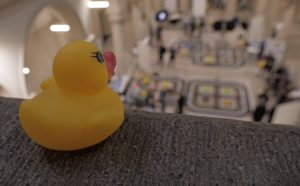Here are the conclusions from the author of this paper:
“The PID controller is used successfully in many control systems, and its implementation is relatively simple. There are also a number of methods and algorithms for adjusting controller parameters for this type of controller.
PID controllers, on the other hand, are not free of disadvantages. One of them is the requirement of prior knowledge of, even roughly, the model of the process one wants to control. Thus, it is necessary to identify both the structure of the process model and its parameters. Identification tasks are complex tasks, requiring a great deal of knowledge about the nature of the process itself. There are also methods for identifying process models based on the results of practical experiments, however sometimes it may not be possible to conduct such experiments. When using a PID controller, one should also be aware that it was developed for processes, operation of which can be described by linear models. Unfortunately, the behavior of the vast majority of dynamic systems is described by non-linear models.
The consequence of this fact is that, in such cases, the PID controller works using linear approximations of nonlinear systems, which can lead to various errors, inaccuracies, etc. Unlike the classic PID controller, controllers using artificial neural networks do not need to know the mathematical model of the process they control and its parameters.
The ability to design different neural network architectures, such as convolutional, recurrent, or deep neural networks, makes it possible to adapt the neural regulator to the specific process it is supposed to control. On the other hand, the multiplicity of neural network architectures and their design means that we can never be sure whether a given neural network structure is optimal.
The selection of neural controller parameters is done automatically using appropriate network training algorithms. The key element influencing the accuracy of neural regulator operation is the data used for training the neural network. The disadvantage of regulators using neural networks is the inability to demonstrate the stability of operation of the systems they control.
In case of the PID regulator, despite the use of approximate models of the process, it is very often possible to prove that a closed control system will operate stably in any or a certain range of values of variables. Unfortunately, such an analysis cannot be carried out in the case of neural regulators. In summary, the implementation of two different controllers to perform the same task provides an opportunity to learn the advantages and disadvantages of each.”





























































































